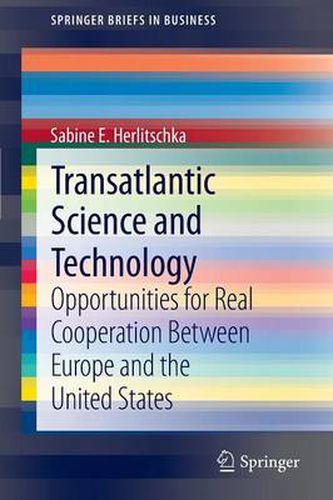Readings Newsletter
Become a Readings Member to make your shopping experience even easier.
Sign in or sign up for free!
You’re not far away from qualifying for FREE standard shipping within Australia
You’ve qualified for FREE standard shipping within Australia
The cart is loading…






This title is printed to order. This book may have been self-published. If so, we cannot guarantee the quality of the content. In the main most books will have gone through the editing process however some may not. We therefore suggest that you be aware of this before ordering this book. If in doubt check either the author or publisher’s details as we are unable to accept any returns unless they are faulty. Please contact us if you have any questions.
Major societal challenges of a global nature include climate change, efficient energy supply, environmental sustainability, and health care. Science & Technology Policy (S&T) policy is an essential contributor to dealing with these challenges; moreover, international cooperation and collaboration in S&T is vital to tackling these issues, since no single nation or even region is able to respond adequately by itself. Within this context, this book addresses recent developments in transatlantic S&T cooperation between the European Union and the United States. The EU-U.S. relationship dates back to the 1950s, with regular EU-U.S. Summits to assess and develop transatlantic cooperation. In the area of S&T, the EU and U.S. concluded an S&T Cooperation Agreement in 1998, renewed it in 2004, and extended it for another five years in July 2009.
The research underlying this study is based on interviews with key stakeholders in the field, with an emphasis on: * potential new opportunities and new mechanisms for increased transatlantic EU - U.S. S&T cooperation under current conditions * examples of coordinated science diplomacy efforts * options for the development of effective joint efforts. While the project is focused on European-U.S. relationships, it also addresses issues of international S&T cooperation involving other regions, including Africa and Asia. The author highlights the urgency of S&T cooperation to address global issues, and the evolving roles of government, universities and research centers, and industry, in promoting successful strategies and programs.
$9.00 standard shipping within Australia
FREE standard shipping within Australia for orders over $100.00
Express & International shipping calculated at checkout
This title is printed to order. This book may have been self-published. If so, we cannot guarantee the quality of the content. In the main most books will have gone through the editing process however some may not. We therefore suggest that you be aware of this before ordering this book. If in doubt check either the author or publisher’s details as we are unable to accept any returns unless they are faulty. Please contact us if you have any questions.
Major societal challenges of a global nature include climate change, efficient energy supply, environmental sustainability, and health care. Science & Technology Policy (S&T) policy is an essential contributor to dealing with these challenges; moreover, international cooperation and collaboration in S&T is vital to tackling these issues, since no single nation or even region is able to respond adequately by itself. Within this context, this book addresses recent developments in transatlantic S&T cooperation between the European Union and the United States. The EU-U.S. relationship dates back to the 1950s, with regular EU-U.S. Summits to assess and develop transatlantic cooperation. In the area of S&T, the EU and U.S. concluded an S&T Cooperation Agreement in 1998, renewed it in 2004, and extended it for another five years in July 2009.
The research underlying this study is based on interviews with key stakeholders in the field, with an emphasis on: * potential new opportunities and new mechanisms for increased transatlantic EU - U.S. S&T cooperation under current conditions * examples of coordinated science diplomacy efforts * options for the development of effective joint efforts. While the project is focused on European-U.S. relationships, it also addresses issues of international S&T cooperation involving other regions, including Africa and Asia. The author highlights the urgency of S&T cooperation to address global issues, and the evolving roles of government, universities and research centers, and industry, in promoting successful strategies and programs.